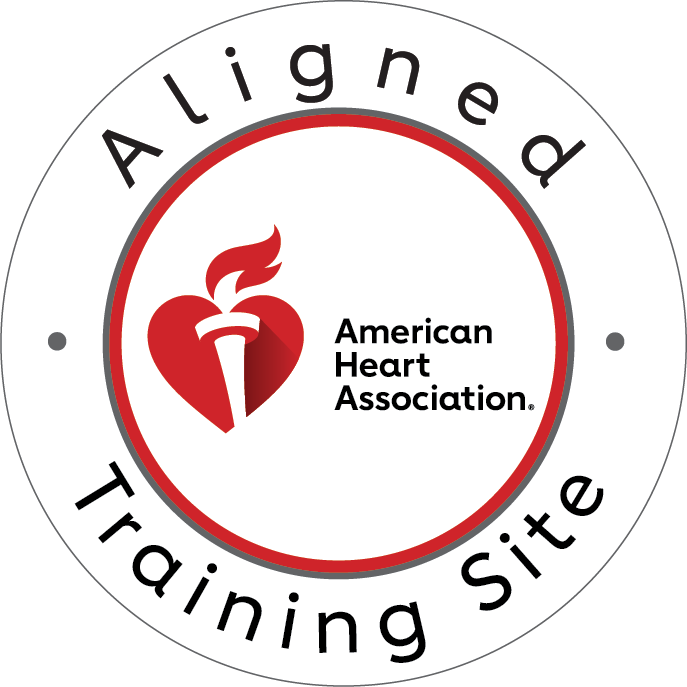In the dynamic realm of healthcare, staying ahead isn’t just a matter of professional ambition; it’s a commitment to the well-being of those entrusted to our care. As healthcare professionals, we navigate through a landscape of evolving practices, emerging technologies, and ever-changing patient needs. Amidst this ongoing evolution, one crucial aspect stands firm: the significance of certifications like Pediatric Advanced Life Support (PALS) in ensuring our preparedness to tackle critical situations, particularly concerning pediatric care.

Understanding PALS Certification:
At the heart of pediatric emergency response lies the Pediatric Advanced Life Support (PALS) certification. Designed to equip healthcare providers with the specialized knowledge and skills needed to address life-threatening pediatric emergencies, PALS training encompasses a comprehensive array of topics ranging from pediatric assessment and recognition of respiratory distress to effective resuscitation techniques.
PALS certification goes beyond basic life support protocols, delving into the unique physiological and psychological considerations inherent in pediatric care. It empowers healthcare professionals with the ability to rapidly assess and intervene in critical situations involving infants and children, thereby significantly enhancing the chances of favorable outcomes.
The American Heart Association (AHA), along with other reputable organizations, sets the standards for PALS certification, ensuring that healthcare providers undergo rigorous training and evaluation to attain this vital credential. Typically, PALS certification is valid for two years, after which renewal is required to maintain proficiency and stay abreast of the latest developments in pediatric emergency care.
The Need for Renewal:
While obtaining initial PALS certification marks a significant milestone in a healthcare provider’s journey, it is crucial to recognize that proficiency in pediatric emergency care is not a static achievement. The landscape of healthcare is in a perpetual state of flux, characterized by advancements in medical knowledge, updates to treatment protocols, and revisions to clinical guidelines. Consequently, the skills and competencies acquired during initial PALS training may become outdated over time, underscoring the critical importance of renewal.
PALS certification renewal serves as a mechanism for healthcare providers to refresh their knowledge, hone their skills, and integrate the latest evidence-based practices into their clinical repertoire. In a field where split-second decisions can mean the difference between life and death, maintaining proficiency is non-negotiable.
Consider, for instance, the evolution of resuscitation techniques or the introduction of innovative medical devices designed specifically for pediatric patients. Without regular renewal and ongoing education, healthcare providers risk falling behind the curve, potentially compromising the quality of care delivered to pediatric patients in emergent situations.
Furthermore, the expiration of PALS certification necessitates a reevaluation of one’s readiness to respond to pediatric emergencies. While healthcare providers may possess years of experience in their respective fields, complacency can be a formidable adversary, dulling the edge of clinical acumen and undermining the effectiveness of emergency interventions.
By embracing PALS certification renewal, healthcare professionals reaffirm their commitment to excellence and their dedication to the highest standards of patient care. They demonstrate a willingness to adapt to changing circumstances, to embrace new methodologies, and to continuously strive for improvement in their practice.
Ensuring Competency and Confidence:
Beyond merely meeting regulatory requirements, PALS certification renewal plays a pivotal role in ensuring healthcare providers maintain a high level of competency and confidence in pediatric emergencies. While initial certification imparts essential knowledge and skills, proficiency can diminish without regular practice and reinforcement.
Through the process of renewal, healthcare professionals engage in focused review and hands-on training, enabling them to sharpen their diagnostic abilities, refine their treatment strategies, and enhance their proficiency in critical interventions. This iterative approach to learning not only solidifies existing competencies but also fosters the development of new skills and techniques that may have emerged since their last certification.
Furthermore, the renewal process serves as a platform for healthcare providers to confront and address any gaps or deficiencies in their knowledge or practice. By participating in simulated scenarios and case-based discussions, individuals have the opportunity to identify areas for improvement and refine their clinical decision-making abilities in a supportive environment.
Perhaps most importantly, PALS certification renewal instills a sense of confidence and readiness among healthcare providers when faced with pediatric emergencies. The knowledge that one’s skills are current and aligned with best practices instills a sense of reassurance, enabling healthcare professionals to approach challenging situations with composure and competence.
This confidence is not only beneficial for healthcare providers themselves but also translates into better outcomes for patients. Research has consistently shown that healthcare providers who demonstrate confidence and proficiency in emergencies are better equipped to deliver timely and effective care, ultimately improving patient outcomes and reducing morbidity and mortality rates.
V. Meeting Regulatory Requirements:
In addition to its intrinsic value in enhancing clinical competency and patient care, PALS certification renewal is often a mandatory requirement set forth by regulatory bodies and healthcare institutions. These requirements are put in place to ensure that healthcare providers possess the requisite knowledge and skills to deliver high-quality care to pediatric patients in emergencies.
Regulatory bodies such as the American Heart Association (AHA) and the American Academy of Pediatrics (AAP) establish guidelines and standards for PALS certification, outlining the specific training requirements and renewal intervals that healthcare providers must adhere to. Failure to maintain current certification status may result in disciplinary action, jeopardizing one’s licensure, employment status, and professional reputation.
Furthermore, many healthcare institutions and employers mandate PALS certification as a condition of employment or privileging. Whether working in a hospital emergency department, pediatric intensive care unit, or pre-hospital setting, healthcare providers must demonstrate proficiency in pediatric emergency care to fulfill their professional responsibilities effectively.
Beyond the immediate consequences for individual healthcare providers, lapses in PALS certification can have broader implications for healthcare systems and patient safety. Non-compliance with regulatory requirements may result in institutions facing fines, sanctions, or accreditation deficiencies, compromising their ability to deliver quality care and maintain public trust.
By prioritizing PALS certification renewal, healthcare providers demonstrate their commitment to regulatory compliance and professional accountability. They affirm their dedication to upholding the highest standards of patient safety and quality care, aligning themselves with the expectations of regulatory bodies and healthcare organizations.
VI. Advancing Career Opportunities:
Beyond its immediate implications for patient care and regulatory compliance, PALS certification renewal can significantly impact healthcare professionals’ career trajectories. In today’s competitive healthcare landscape, employers increasingly value certifications and specialized training as indicators of expertise and dedication to professional development.
For healthcare providers seeking to advance their careers in pediatric care settings, PALS certification serves as a valuable credential that distinguishes them from their peers. Whether in leadership roles, seeking opportunities for specialization, or pursuing advancement within their current roles, maintaining current PALS certification demonstrates a commitment to excellence and a readiness to take on increasingly complex challenges in pediatric emergency care.
In many cases, employers explicitly require PALS certification as a prerequisite for certain positions or responsibilities. Healthcare facilities, including hospitals, clinics, and ambulatory care centers, prioritize hiring candidates who possess the necessary credentials to provide optimal care to pediatric patients in emergencies. By keeping their PALS certification up-to-date, healthcare professionals position themselves as desirable candidates for employment and advancement opportunities within these settings.
Furthermore, PALS certification renewal can open doors to specialized career pathways within pediatric healthcare. Whether in pediatric emergency medicine, pediatric critical care, or pediatric anesthesia, specialized roles often require advanced training and certification in pediatric resuscitation and emergency care. By maintaining current PALS certification, healthcare providers signal their readiness to pursue these specialized career paths and contribute meaningfully to their respective fields.
Moreover, PALS certification renewal enhances healthcare professionals’ marketability and professional reputation within the broader healthcare community. Whether seeking employment opportunities, consulting engagements, or speaking opportunities, individuals with current PALS certification are viewed as knowledgeable and competent professionals who prioritize patient safety and quality care.
VII. Accessing Renewal Options:
Renewing PALS certification is a vital step for healthcare professionals committed to maintaining their proficiency in pediatric emergency care. Fortunately, there are various renewal options available to accommodate the diverse needs and schedules of healthcare providers.
Online Renewal Courses: Online renewal courses offer flexibility and convenience, allowing healthcare professionals to complete their PALS recertification at their own pace and from the comfort of their homes or workplaces. These courses typically consist of interactive modules, quizzes, and simulations designed to reinforce key concepts and skills covered in PALS training. Online renewal options are ideal for busy healthcare professionals who require flexibility in scheduling their renewal activities.
In-Person Renewal Workshops: In-person renewal workshops provide hands-on training and real-time feedback from experienced instructors, offering an immersive learning experience for healthcare providers seeking to refresh their PALS knowledge and skills. These workshops often include scenario-based simulations, group discussions, and skills stations to enhance participants’ clinical proficiency and confidence in pediatric emergency care. In-person renewal options are beneficial for individuals who prefer hands-on learning and value direct interaction with instructors and peers.
Blended Learning Programs: Blended learning programs combine online modules with in-person components, offering the best of both worlds in terms of flexibility and hands-on instruction. Participants typically complete online coursework at their own pace before attending a scheduled in-person session for skills practice, simulation scenarios, and instructor-led discussions. Blended learning programs cater to diverse learning preferences and are well-suited for healthcare professionals seeking a balance between flexibility and hands-on training.
Customized Training Solutions: Some organizations offer customized training solutions tailored to the specific needs and requirements of healthcare facilities and groups. These solutions may include on-site training sessions, tailored curriculum development, and ongoing support to ensure that healthcare providers receive comprehensive and relevant PALS renewal training. Customized training solutions are ideal for healthcare facilities looking to standardize PALS recertification across their workforce or address specific training needs and challenges.
Regardless of the renewal option chosen, healthcare professionals should ensure that the selected program is accredited by recognized accrediting bodies such as the American Heart Association (AHA) or the American Academy of Pediatrics (AAP). Accredited programs adhere to rigorous standards of quality and effectiveness, ensuring that participants receive high-quality training that aligns with current guidelines and best practices in pediatric emergency care.
VIII. Conclusion:
In the fast-paced and ever-evolving landscape of healthcare, maintaining proficiency in pediatric emergency care is paramount for healthcare professionals dedicated to delivering high-quality patient care. PALS certification renewal serves as a cornerstone of this commitment, providing healthcare providers with the knowledge, skills, and confidence needed to effectively respond to life-threatening emergencies involving pediatric patients.
Throughout this article, we have explored the multifaceted benefits of PALS certification renewal, from ensuring clinical competency and regulatory compliance to advancing career opportunities and enhancing patient care. By renewing their PALS certification, healthcare professionals demonstrate their dedication to staying ahead in pediatric emergency care, embracing lifelong learning, and upholding the highest standards of professional practice.
As healthcare providers, it is incumbent upon us to prioritize ongoing education, training, and certification renewal to ensure that we remain current, competent, and prepared to meet the dynamic challenges of our profession. Whether through online courses, in-person workshops, blended learning programs, or customized training solutions, myriad options are available to accommodate the diverse needs and preferences of healthcare professionals seeking to renew their PALS certification.




